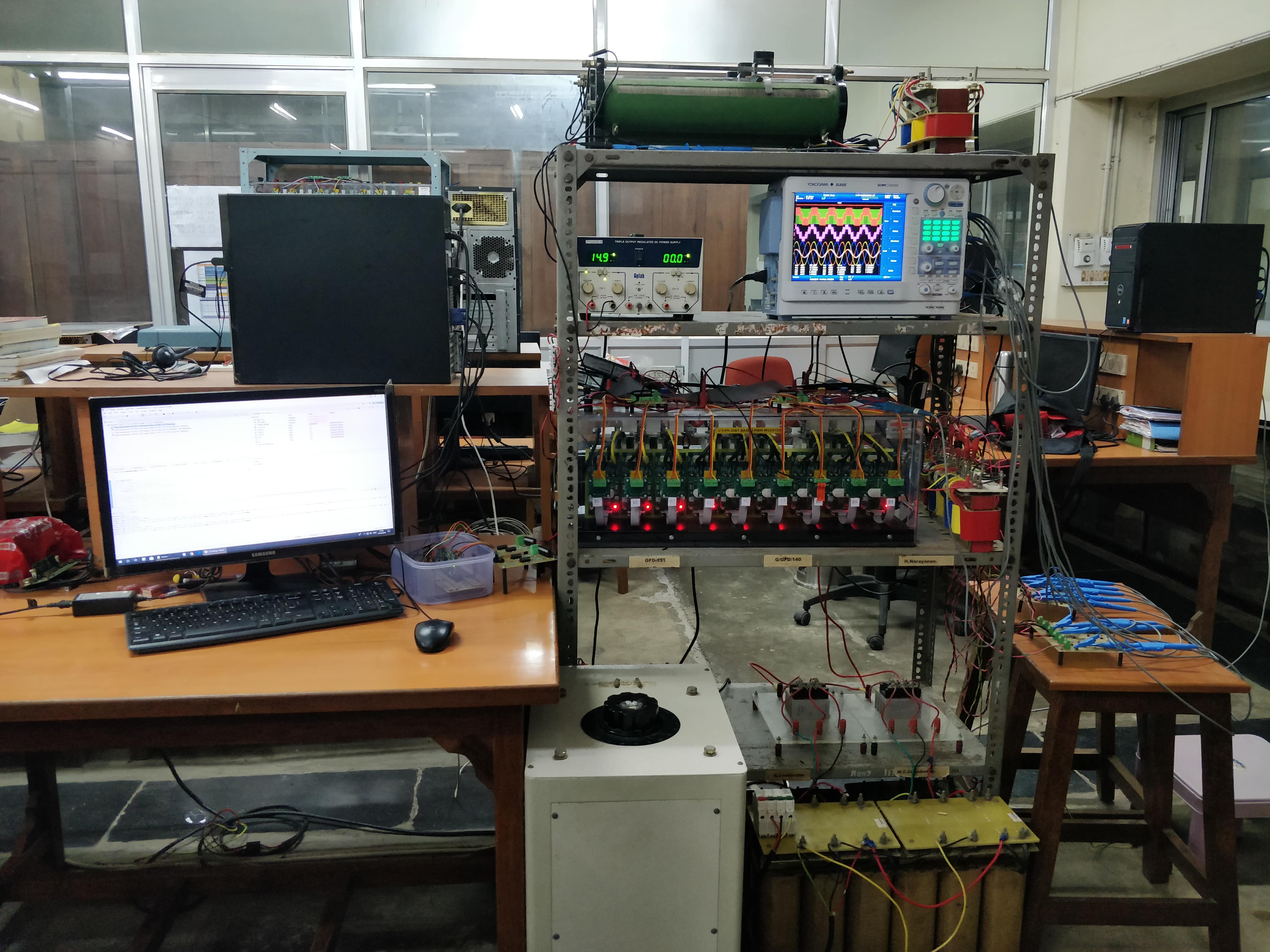This invention introduces a Modular Multilevel Converter (MMC) designed for medium power applications. The MMC consists of a specific number of modules per phase, where each module includes two switches. These modules are interconnected to a shared DC-link, facilitating connection to one or more DC sources. Additionally, each phase of the MMC incorporates at least one coupled inductor to link the modules to the converter's output terminal. This configuration enhances voltage waveform resolution and reduces harmonic distortion, making the MMC suitable for diverse applications requiring precise voltage control and operational reliability in medium power application.
Conventional multilevel converters require multiple voltage sources or DC-links (often electrolytic capacitors) to clamp voltage at lower levels. This complexity increases system design intricacy and operational costs. The use of numerous electrolytic capacitors as DC-links not only raises the overall cost of the converter but also compromise its longevity due to the limited lifespan and reliability of electrolytic capacitors. While modular structures enhance system reliability and reduce voltage and current distortion, they may not be cost-effective or suitable for all high-power applications due to the aforementioned drawbacks.
- Simplified modular design: MMCs are structured with multiple modules per phase, each comprising pairs of switches connected to a common DC-link. Its modular structure with fewer components, reduces complexity and improves reliability.
- Scalability: The modular nature of MMC allows for easy scalability to different voltage and power levels by adding or removing modules as required, providing flexibility in various applications.
- Voltage levels: They generate multilevel voltage outputs using parallel-connected modules, reducing harmonic content and enhancing grid compatibility.
- Coupled inductors: Each phase integrates coupled inductors to mitigate out-of-phase harmonic components and ensure smooth output voltage.
- Reduced size and cost: By employing coupled inductors and minimizing the number of components, the MMC achieves a compact design with lower manufacturing costs compared to traditional multilevel converters.
- Enhanced reliability and fault tolerance: Each module operates independently, allowing the MMC to continue functioning even if one module fails, ensuring continuous operation. Since, it is capable of operating with disabled modules without significant impact on overall performance, it ensures robustness in varying operational conditions.
The MMC has been tested with three cells per phase and a DC-link voltage of 200V. A three-phase inductor with an inductance value of 5 mH, increased to 20 mH by reducing air-gaps, was used as the coupled inductor.
The waveforms demonstrated that the output voltage of each module has two levels, while the phase output voltage has four levels. The currents in the windings of the coupled inductor were almost equal in magnitude, validating the equal distribution of fundamental frequency currents. The MMC produced the rated output voltage even after disabling faulty modules.
A prototype has been developed and validated in lab environment. The MMC produced the rated output voltage even after disabling faulty modules.
4
MMCs contribute to energy conservation and reduced electricity consumption by reducing voltage & current distortions and optimizing system performance. Improved power quality indices ensure stable and reliable electricity supply, benefiting industries, residential areas, and essential services dependent on uninterrupted power. The lower switching frequencies and reduced losses enhance overall energy efficiency indirectly contribute to lower carbon emissions.
- Renewable energy integration: MMCs are used in grid-connected solar and wind power systems for efficient power conversion and grid synchronization.
- Electric vehicle charging: MMCs facilitate fast and efficient charging stations for electric vehicles, supporting high-power DC charging.
- Industrial drives: It has applications in industrial motor drives for variable speed control and energy efficiency improvements.
Geography of IP
Type of IP
201821047042
421226

